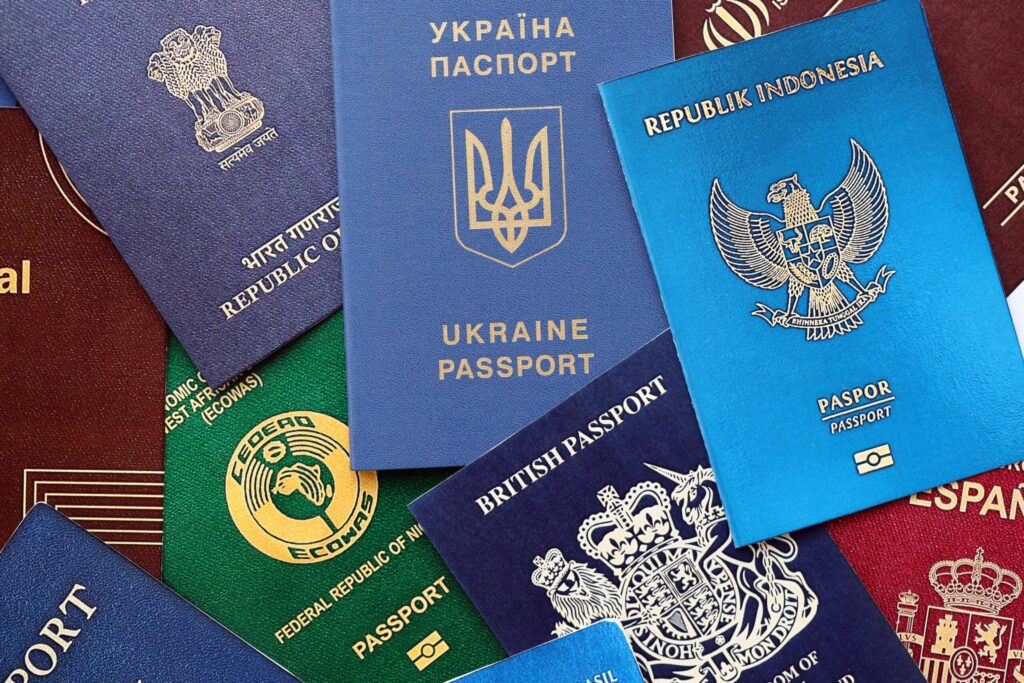I was in an Uber coming back to Dubai last Tuesday when an alert flashed up on my phone from the Spectator, the British high Tory magazine with which I have a fractious but enduring attachment.
“The end of the pick ‘n’ mix passport – it’s becoming harder to buy citizenship,” the screen said of an article that explained how the world was turning against second passports – “a legal hack for the well-advised, well-connected or well-heeled”.
I can see how that kind of thing would play well with the old fogey readership of the Speccy: “Dirty foreigners buying nationality that we fought for in two World Wars and one World Cup blah blah”.
But as I’d just spent a day with exactly the kind of people who were the target of the Speecy’s ire, I found it hard to reconcile the magazine’s narrative with the facts I’d heard just a few hours before.
Rather than becoming harder to acquire a second passport, the Henley & Partners Global Citizenship Forum in Abu Dhabi’s swanky Rosewood Hotel informed me that business was booming.
Dominick Volek, a smart South African who is head of Henley’s private client operations, told me that when he joined the firm in 2016, it had 20 offices around the world. Now it has 60, and is expanding all the time.
In the first quarter of this year, inquiries relating to “investment migration” (as it’s known in the trade) were running 60 percent up year-on-year, boosted by a surge from high net worth individuals (HNWIs) in the US, now its biggest client source.
Many American millionaires don’t want to work in a factory in Michigan assembling Buicks, it seems, despite President Trump’s exhortations.
The inescapable demographic pressure for a new nationality is coming from India and China
Also high on the list of would-be economic refugees was the UK, escaping Keir Starmer’s ban on non-domicile tax status – 11,000 dollar millionaires left last year, according to the London Times, including 18 centimillionaires (those with $100 million plus of disposable wealth excluding property) and two billionaires.
But the sudden demand for second passports from America and Britain is a short-term politically-inspired thing, compared with the longer-term trend in the passport business.
The inescapable demographic pressure for a new nationality is coming from India and China, explained Parag Khana, the strategist and author who gave a very illuminating talk at the Henley event. In particular, the “Indian diaspora” – of which the UAE is well aware – is set to become a transformational global movement, he said.
Khana also made the portentous point that Generation Alpha – currently small children or teenagers – will be the first generation in history that is smaller in numbers than the previous generation, Gen Z, because of declining fertility rates, mainly in the West. The future is indeed Asian and African.
Of those who want to leave their native home, only the lucky few will have the resources to become “investment migrants” and choose their country of citizenship.
The rest will face the bureaucratic path of following family members to other countries, or the more dangerous option of escaping, by any means necessary, from intolerable economic, climate and political/conflict conditions.
None of the people in the Henley forum would fall into these latter categories. They would instead become – for a substantial donation to a government or a real estate purchase – holders of passports from Portugal, Greece or Malta in Europe, or a small number of countries in the Caribbean, or even some South East Asian countries that were said to be considering citizenship plans.
Far from the world cracking down on second passports, the buzz at the Henley event was “passport portfolio” by which HNWIs could hold any number of citizenships – four was considered a reasonable goal – using them according to visa eligibility, political circumstance or even whim. “Do I feel Maltese or Dominican today? I’ll decide at check-in.”
For many of the HNWIs at Henley’s forum, the UAE’s golden visa scheme is the perfect solution, offering residence rights in a dynamic economy with an attractive lifestyle – the perfect place in which to collate their passport portfolio.
But “The ultimate billionaire bolt-hole”, according to Volek, is New Zealand, which for between $5 million-$10 million will grant permanent residence to a “master of the universe” seeking to get away from the dangers of the world.
None of this will soothe the grumpies at the Spectator. But it looks like the second passport is an idea whose time has come – or even the third or fourth passport.
Frank Kane is Editor-at-Large of AGBI and an award-winning business journalist. He acts as a consultant to the Ministry of Energy of Saudi Arabia
Register now: It’s easy and free
AGBI registered members can access even more of our unique analysis and perspective on business and economics in the Middle East.
Why sign uP
Exclusive weekly email from our editor-in-chief
Personalised weekly emails for your preferred industry sectors
Read and download our insight packed white papers
Access to our mobile app
Prioritised access to live events
Already registered? Sign in
I’ll register later



